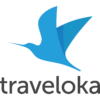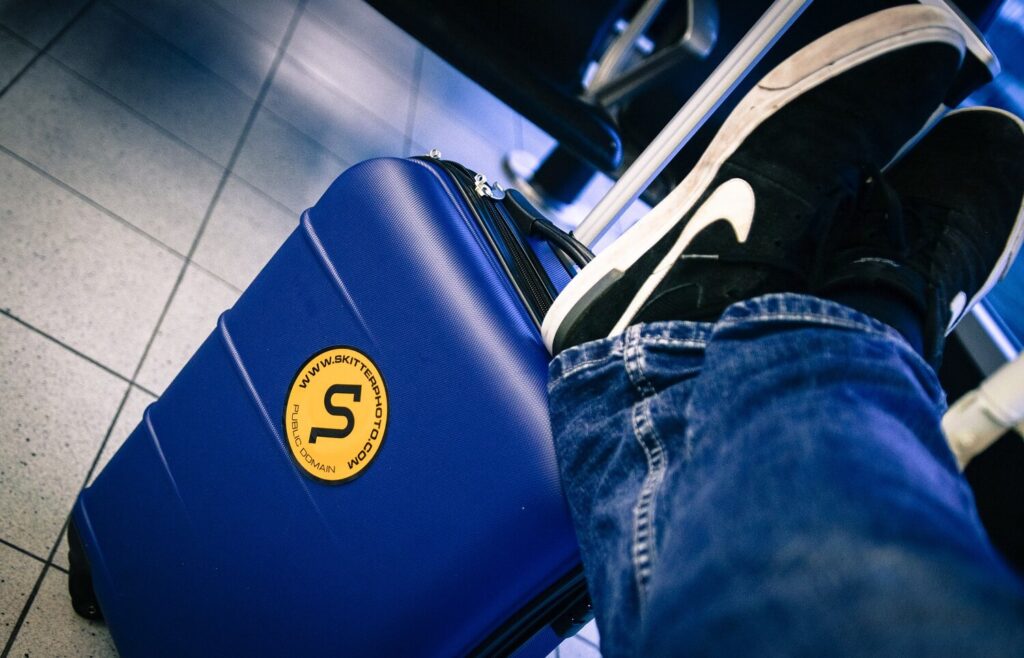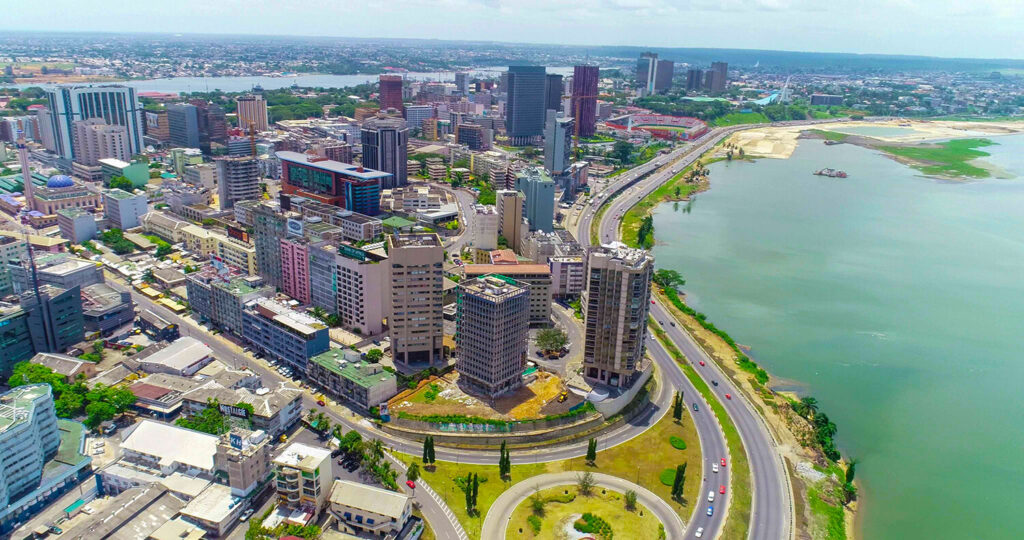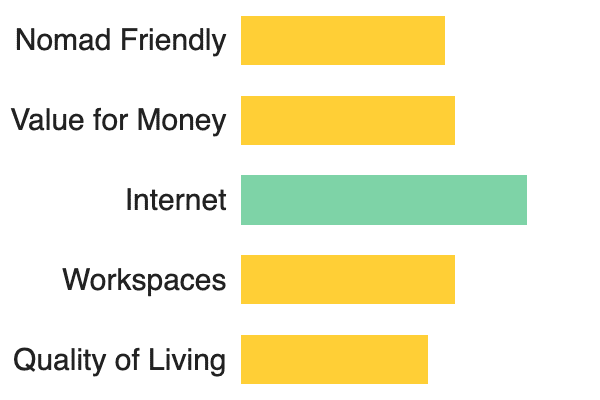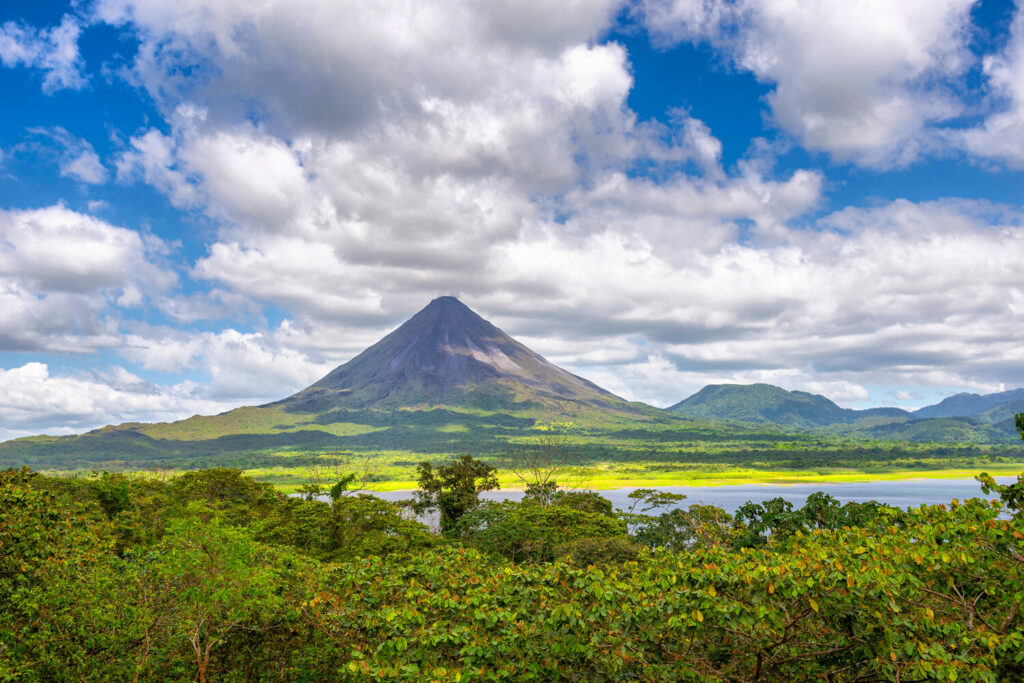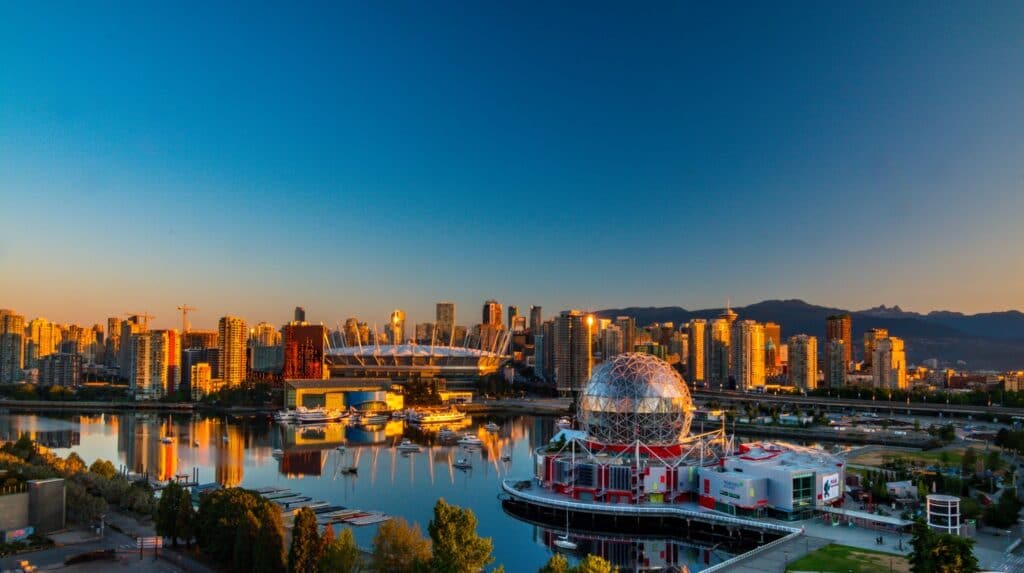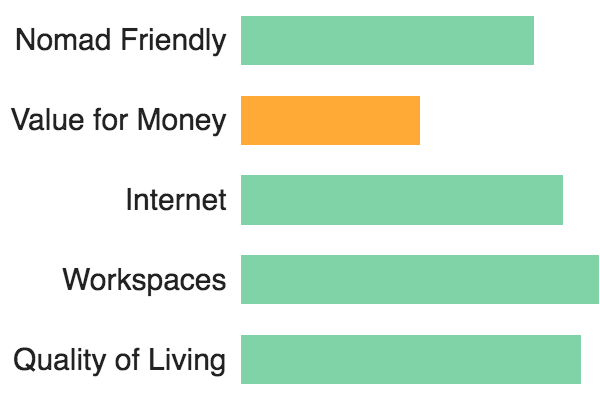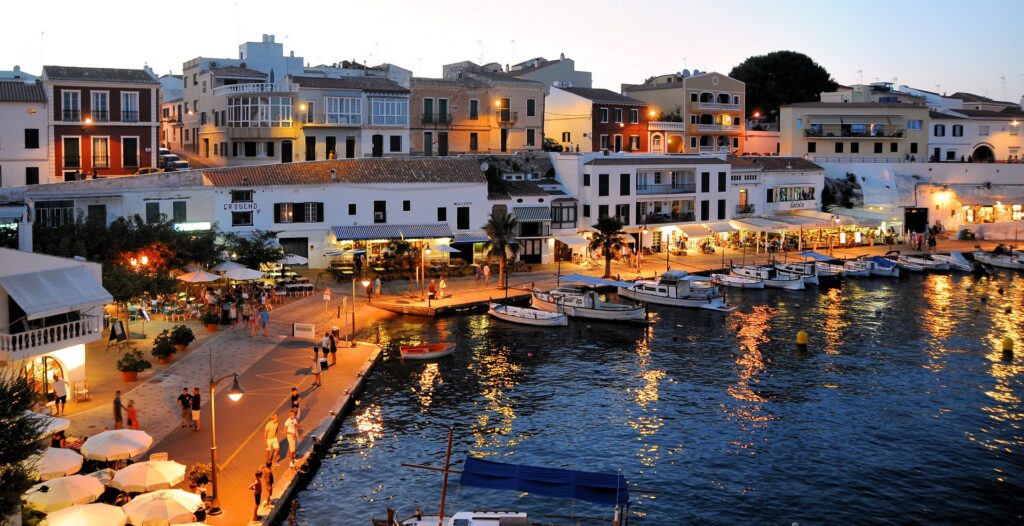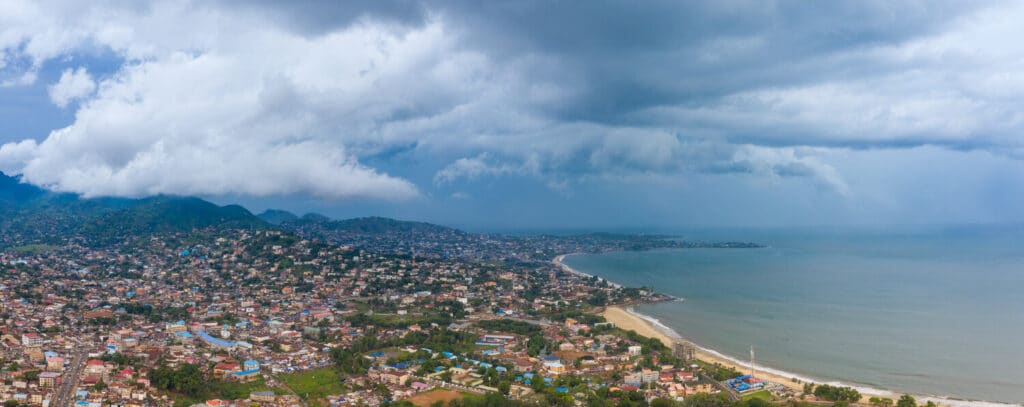
Freetown, Sierra Leone
A Digital Nomad Guide to Freetown
Freetown, the capital and largest city in Sierra Leone, earned its name when it was founded in 1792 as a colony of freed slaves. It is the most important commercial center in the country. Home to one of the largest natural harbors in the world, the city’s port is the main gateway for international import and export. Its flourishing industries include mining, marine energy, oil, and agriculture.
Freetown is home to a wide range of cultures and religions. All ethnicities are united by the common language of Krio, a derivation of English, which is spoken by 97% of residents.
The violent civil war of the 1990s left the city in ruins. Today Freetown is gradually recovering the infrastructure of different sectors and the tourism industry. A growing number of tourists are drawn to the beautiful, unspoiled beaches like Lunley and Lakka. The growing popularity of the city is evident from the number of hotels that have sprung up in recent years mostly for business tourism but also for leisure.
The bustling center with the shouts of the market traders and the incessant traffic contrast with the rolling hills, towering mountains and white sand beaches that envelop the beating heart of the city. A life in Freetown is full of adventure. A melting pot of ethnicities and religions, Freetown is a welcoming city where the colors and rhythm of African culture captivate you.
Living in Freetown Overview
| $4.31 | |
| $0.80 | |
| $2.05 | |
| $0.64 | |
| $1.17 | |
| $0.15 | |
| $102.54 | |
| $30.71 | |
| $102.54 | |
| $786.17 |
Currency: Indonesian rupiah (Rp)
[erw_exchange_rates_widget lg=”en” tz=”0″ fm=”IDR” to=”EUR,USD,GBP,AUD,JPY,RUB” st=”primary” cd=”” am=”15000″][/erw_exchange_rates_widget]
ATMs
Max Withdrawal: Rp 3,000,000
Withdrawal Fee: Rp 30,000 – Rp 50,000
Use of Credit Cards: Mostly Cash
Average Temperature °C
Average Temperature °F
Average Rainfall
Average Rain Days
Daily Sunshine Hours
Digital Nomad Personal Experience in Freetown
Sierra Leone is among the countries with the best natural beaches, with beautiful white sand and full of the kind smiles of its people. Freetown has beautiful beaches, picturesque mountains nearby, and crazy fun nightlife as the locals certainly know how to party. It is a gateway to rural Africa, but with amenities such as air conditioners and good restaurants.
There is a tight-knit expat community in Freetown that you can easily get involved in by joining local sports clubs or parties. In addition, in the city, you can enjoy the colors of Sierra Leone but also, when you need it, you will find places that will make you remember a bit your country, such as restaurants and clubs where foreigners usually hang out.
Life is very simple and easy here. People take care of their affairs freely and if you are a foreigner you will feel much freer than in your country of origin since the social rules of the country do not apply to you.
The challenges in Freetown are the poverty you will see, the racism you might experience, the political instability, and the pesky scammers you might encounter. However, most of the people are very welcoming and friendly and will make you feel like one of the family.
Work in Freetown
Best Places to Work in Freetown
Freetown is a city that is beginning to develop and, consequently, has some coworking spaces where you can obtain already-established offices with everything you need. The spaces are basic and I suggest you check them before deciding to work there or from your own home.
Innovation Axis
Innovation Axis is a daughter company of Innovation SL Ltd. It is Sierra Leone’s first fully functioning incubator and accelerator. They coach entrepreneurs in developing and delivering their value proposition, and source funds to invest in a selected few. Innovation Axis also comes with a co-working space. It offers a common area in a dynamic and vibrant environment. They are located in Kingtom: a business district with several warehouses. It hosts the Sierra Leone Police Barracks, housing estates belonging to the Freetown Cold Storage Company (with mostly expatriate occupancy), two of Freetown’s top secondary schools (Prince of Wales and St Edwards) and one college. Kingtom is also home to the Bank of Sierra Leone Complex, a well-known centre for workshops, conferences and conventions. The entire building and compound has 24-hour security and parking space. The volume of traffic is low compared to other parts of the city making driving here an easy task. They are focused on tech, fashion, social and circular economy enterprises.
Sensi Tech Hub
You can also try to be part of Sensi Tech Hub, Sierra Leone’s first innovation community. They are a social enterprise that offers ICT training and business incubation to young people. They offer expert software creation and ICT consultancy for international organizations. Their main office in Aberdeen, west Freetown, doubles as a co-working space for budding entrepreneurs to start their journeys or as office space for start-ups or freelancers. They also operate CTI-Hub in Wellington and currently have two Zuba boxes shipping container tech hubs in Makeni and Pujehun to deliver tech and business education to young people in the provinces. These hubs and the successful local businesses that they have incubated form the business and technology ecosystem they are building to drive development in Sierra Leone and beyond. The team has worked on health and innovation projects across West Africa, data programs for international NGOs, websites and apps. Their clients include organizations such as Deutsche Gessellschaft fur Internationale Zusammernarbeit (GIZ), the World Bank and the UN Population Council.
The second more suitable places for working are the coffee shops of four- and five-star hostels in town. For example, Radisson Blu Mammy Yoko Hotel has its own cafe with wifi and a wide variety of coffees; from latte to espresso to Americano to cappuccino. Here you can work in a pleasant ambiance surrounded by tropical plants and Sierra Leonean art. You can also do a day tour around the best hotels in town as they are business oriented and most of them have their own coffee and working spaces.
Empower Africa Business Center
Situated in a prime location in the heart of Freetown in an iconic building, Empower Africa Business Center offers a coworking space with dedicated desks, fully equipped conference rooms, and offices supporting the business community in Sierra Leone. If you want a great place to network with an inspiring ocean view, check this place out.
Best Places to Live in Freetown
Best Neighbourhoods
The best districts to live in are sometimes outside but close to the city. In Freetown, there are few houses and apartments that meet Western standards so I advise looking for an area with private security and a house with the comforts you need plus an electric generator to avoid power outages. Recommended districts are Wilkinson Road, Hill Station, Barbadorie, Juba, Lumley, and Aberdeen.
Tower Hill
Tower Hill is an affluent government and residential neighborhood in central Freetown, Sierra Leone. Tower Hill is located within the central business district in downtown Freetown. Tower Hill is the seat of the government of Sierra Leone, as it is home to the State House (the office and residence of the Sierra Leone president). Tower Hill is also home to the Sierra Leone House of Parliament, the Ministry of Defense and National Security (Sierra Leone), the Bank of Sierra Leone, the Sierra Leone National Electoral Commission (NEC), and many other government buildings.
Hill Station
Hill Station is a western area in Sierra Leone a little northeast of Freetown. It used to be an exclusive area for white people and a focus of segregation, today it is for people with purchasing power.
Lumley
Lumley is a western area in Sierra Leone a little northeast of Freetown. Here you can find Lumley Beach, a curving stretch of white sand lined with bars, restaurants, hotels and clubs. The beach remains relatively quiet on weekdays, making it an ideal place for a quick swim or a relaxed meal at one of the many restaurants in the area.
Wilkinson Road
Wilkinson Road is the main business district of the city. It has a length of 4,37 kilometers and is full of shops and businesses. Here you will be close to all the movement of Freetown.
Aberdeen
Aberdeen is a coastal neighborhood in Sierra Leone’s capital. It is home to numerous upscale restaurants, hotels, Lumley Beach and other tourist facilities. It is also the quietest district of Freetown with close, beautiful and vibrant beaches like Lumley Beach, nice restaurant choices, a full range of local shops and international supermarkets. This area can lay claim to the best and choicest spots for leisure and residential needs.
You will notice that the above-mentioned areas are in the west of Freetown. There are of course wealthy people in all corners of Freetown and in other large cities like Bo or Makeni but these districts have a relatively higher concentration of them and also of nice housing options for you and your family.
Find an Apartment in Freetown
Freetown, the country’s capital is where expats would normally stay. For starters, the airport is located here, secondly, diplomatic missions are also housed in this city. The Lebanese community is quite large in the city and that means that there is some infrastructure, road works and there are a lot of commercial establishments.
One of the first things to do when settling in the city is to find a home. In order to rent a flat/apartment or house you should familiarize yourself with the area, determine where you want to live, and evaluate what you need. Consider access to shops, schools, transport, work and also security and electricity generators. With luck, you’ll have an employer to sort this out for you. Sometimes they provide and pay for the housing.
Long-term accommodations such as apartments or houses range from 900 USD per month to a staggering 20.000 USD per month. The price usually reflects the quality of housing. Even if your costs are covered, however, you could still find yourself with a headache when it comes to searching for property.
First of all, in most places, you will have to pay your rent in advance. This could mean shelling out more than 20.000 USD for the year before you move in. Many homeowners offer shorter tenures but at a higher monthly rate. Security deposits are not usual, which makes the balance positive.
Some online places to look for housing are Freetown Announce Yahoo Group, Visit Sierra Leone agency, Sierra Leone Property Solutions, forums at expat websites like Internations.org or expat Facebook groups.
Given the heat and traffic jams, proximity to work can be an important factor to consider. Also, check utility supplies. For example, if your new home has a direct water supply (and reserve) or if you will have to pay for deliveries to an outdoor tank and also how much electricity you could obtain per day, if the house has a backup generator, which type, if its use would be limited to certain hours of the day or if you would need to buy your own (you can also rent one per month).
If you are an expat you will probably need a watchman to open the huge iron gate and keep an eye on the house.
Apartment complexes often include security personnel as part of the lease, but if you decide to rent a single home you may have to hire someone and pay him yourself. Keep in mind that many employment contracts stipulate that you must have a security guard at the door of your house.
Consider that, in general, you will have to pay for a lot of repairs since the pipes, wiring, appliances, and everything that involves electricity, usually have an unreliable quality or previous inappropriate use which can lead to minor exploits or problems with the plumbing.
Expects to spend around 140 USD a year for water and about 25 USD a week for electricity. During the drier months with more blackouts, possibly another 25 USD and 40 USD extra per week in diesel for the generator.
Cheap Places to Stay in Freetown
If your budget is low, you should do your own research. You can check Facebook groups with cheaper properties or other expat webpages for opportunities. It may also be a good idea to rent a room. Some expat groups on Facebook are Freetowners and Freetown Expats. Another option to find a roommate is to connect with other expats living in the city through Internations or Couchsurfing.org.
You can also walk through the different neighborhoods to identify empty houses or ask the building managers if they know of any apartments or houses in the area. Keep in mind that in order to make it cheaper you should look for houses without air conditioning and without an electric generator, which may mean that you will not have electricity for some hours during the day.
Freetown Visa
All persons entering Sierra Leone must have a valid passport or travel document. Citizens of the Economic Community of West African States (ECOWAS) do not require a visa to enter the country. Nationals from the following countries may enter and stay in Sierra Leone visa free: Benin, Burkina Faso, Cape Verde, Cote D’Ivoire, Gambia, Ghana, Guinea, Guinea-Bissau, Liberia, Mali, Mauritania, Niger, Senegal and Togo. Nationals from other countries must obtain a visa through a Sierra Leone embassy or consulate.
It is not advisable to try and get a visa on arrival as some flights will not allow you to board for Sierra Leone in the first place.
The types of visas available to expats are business, temporary worker, student, marriage, transit, tourist, multiple entry, and temporary residency. Expats that will stay in Sierra Leone for an extended period must acquire a temporary residency visa. This can be done while they are in the country under a tourist visa. To apply for a temporary residency visa, you will need to provide the authorities with a company profile and an invitation letter from your Sierra Leone employer, a visa application form, proof of booking accommodation, and proof that you have travel insurance. You will also need to provide evidence that you have sufficient funds to cover your period in the country (such as a bank statement).
To apply for any of these visas, visit the relevant embassy website where you should find clear instructions on how to apply. The Sierra Leone government has also set up an online site to process visas: www.visasierraleone.com/sierra-leone-temporary-residency-visa.
You must have a valid passport or travel document to enter the country. Take into consideration that everyone needs a work permit in order to work in Sierra Leone.
For a list of all the embassies based in Freetown, including addresses, contact details and website links, visit the Embassy Pages website .
Culture and Food in Freetown
Sierra Leonean cuisine is quite simple and consists mainly of rice-based dishes and stews. However, it also includes fresh fruits and vegetables and, near the coastal areas, a wide variety of seafood.
Food at homestays is traditionally served in a giant bowl for everyone to share. It is only eaten with the right hand and served first to the oldest man in the family. From there, it goes down the family hierarchy until everyone has eaten.
Being a seaside city, Freetown is a seafood paradise. There are literally thousands of fish markets throughout the city with all kinds of fish and marine animals. If you are someone who likes to cook, on Sundays, you can buy ultra-fresh seafood directly from the fishermen on Lumley and Adonkia Beach.
There are also many local restaurants that serve excellent dishes at quite reasonable prices. For those looking for something more diverse, there is also a range of international options.
So, if you prefer to go to a restaurant, Alex’s (64 Cape Road, Aberdeen) with the beautiful Man of War Bay in the background is one of the most popular places to eat in the city. Seafood dominates the menu but there are many other options available including Italian and Middle Eastern fare.
Mamba Point Hotel Restaurant Lagoonda (53 Cape Rd, in Aberdeen Rd) with its elegant dining room is a good place to dine, enjoy cocktails or smoke a shisha pipe on its spacious terrace with views of Man o ‘War Bay. The menu includes meat, fish, pasta and sushi.
Oasis Juice Bar & Guesthouse (33 Murray Town Rd, Freetown) is a café set in a charming garden overlooking the sea, ideal for lunch. Dishes include black bean soup and Thai chicken curry.
D’s Bazaar (38 Siaka Steven Street / 10 Wilkinson Rd. Y 10, Blackhall Road Junction Kissy PWD, Freetown) was one of the first African restaurants established in Freetown. It currently has three establishments and its menu changes every day. Based on traditional food, here you can eat sour cassava leaves or plain rice and fish for a very cheap price.
Also popular is Chicken Town (39 Old Railway Line in Freetown), a fast food establishment for all ages offering different types of chicken recipes, burgers and salads.
For teatime, the small Crown Bakery (5 Wilberforce Street, Downtown Freetown) offers everything from croissants and pancakes to cakes and brownies. This bakery is a hit with expats in town.
Freetown Nightlife
Freetown is a vibrant city with its fair share of entertainment venues. There are some nice bars dotted around town, but most of the popular spots are along Lumley Beach Road.
Friday night is the best night to go out and party until sunrise in Freetown. Clubs and bars range from very fancy and expensive to wet, hot, and low-key.
Baw Baw is an exclusive bar located in the luxurious Radisson Blu Hotel. Every Wednesday there is a jazz night with local bands where you can taste a variety of cocktails by the pool. If you like elegant and relaxed places, this is the spot to start your night.
If you like English-style pubs, Papaya Bar (9 Lumley beach road, Aberdeen) awaits you with good food, a wide variety of beers and the possibility of watching football or rugby matches on one of the giant screens of the place. Every Friday they have live music and it is filled with locals and expats enjoying the beautiful view of Aberdeen Beach. People usually go early, from 6:30 PM, to enjoy the sunset and the stuffed skewers that Papaya is known for.
Warehouse Nightclub (7 Lumley Beach Road, Freetown), open from Wednesday to Saturday, is one of the best nightclubs in Freetown. Its modern decor, great music, and delicious cocktails attract local celebrities and expats who want to feel on vacation for one night. From fluoride to champagne and reggae nights on Thursdays with free admission, the club keeps the attention with its varied types of entertainment.
The Twenty Twenty 2020 club (Approved School Road, Portee) is part of a larger complex with a restaurant, hotel and conference room. It usually reaches its maximum capacity with 800 people dancing, playing pool, smoking shisha or enjoying the elegant VIP room. There is no need to worry about security at the club as it is located across from the police station that the club owner has helped rebuild.
Scarlett Lounge (Mamba Point Lagoonda Resort, Aberdeen) is part of the impressive Mamba Point Lagoonda Resort, which includes a cinema, restaurant, casino and a hotel. The club has an excellent quality sound system and a lounge that floats over the Atlantic Ocean with a fascinating view.
Things to do in Freetown
In Sierra Leone and Freetown there are some wonderful attractions for visitors without having to compete with the hordes of tourists as the country is still a gem to discover.
The first thing you will notice in the city is the wide canopy of the Cotton Tree, a ceiba tree that symbolizes this city populated by freed American slaves. The tree witnessed the establishment of the capital of Sierra Leone by the British using African labor in the late 18th century. Those who had earned their freedom by suppressing secessionists during the American War of Independence worshiped the tree and said their prayers of thanks for liberation. The tradition continues today, with the locals leaving offerings in honor of their ancestors on the tree.
St. George’s Cathedral also stands as a landmark of the British colonial rule of Sierra Leone. Still in use today, the 1828 church draws locals, who see the building as their spiritual refuge in the heart of an urban setting.
The history of Freetown can be discovered at the Sierra Leone Museum, the National Railway Museum, the Cape Sierra Leone Lighthouse, the Sierra Leone Peace Museum and the colonial stilt houses at Hill Station. The Sierra Leone Peace Museum honors the victims of war, as well as those who fought for freedom. The National Museum of Sierra Leone, housed in the old train station, was established in 1957. The museum is filled with indigenous cultural artifacts and modern historical items. The site shows the painful history of the country and its secret societies. It is a good idea to hire a museum guide to better understand the exhibits. At the National Railway Museum, you can learn about the development of trains in Sierra Leone. Housed in a former engine building, it features a host of exhibits including vintage tickets and photos, travel schedules, and even vintage locomotive models, including a specially designed coach for Queen Elizabeth II’s 1961 visit.
Located 40 minutes outside of town, the Tacugama Chimpanzee Sanctuary is also a must-see. It is necessary to plan the trip in advance, since both a 4×4 and an appointment are necessary. Tacugama Chimpanzee Sanctuary offers a home for 75 orphaned chimpanzees. Two guided tours are offered daily, but if you want a more immersive experience, just stay in the on-site eco-cabins for a few days.
One of the best things to do in Freetown is go to the beach. Beautiful and unspoiled, many of them offer good accommodations and amenities. Nearby, the community-driven shops and restaurants are also worth a visit, as well as the historic fishing villages in Kent Beach.
Lumley Beach, with a rustic charm set, is a curving stretch of white sand lined with bars, restaurants, hotels and clubs. The beach remains relatively quiet on weekdays, making it an ideal place for a quick swim or a relaxed meal at one of the many restaurants in the area.
John Obey Beach is an eco-friendly community 20 miles from Freetown where you can go canoeing, explore local cuisine, or learn to surf. Visitors interested in extending their stay can pitch a tent near the water or rent a bungalow on the beach.
Lakka Beach offers cool water to rest from the heat. It also has bars and restaurants on the beach where you can have a drink or try local cuisine. However, my favorite is Bureh Beach. This beautiful sandy beach suits adventurers and those looking to relax or learn surfing. It has cabins and hotels with a peaceful ambience that will make you embrace the rhythm of Africa in an afternoon.
In addition, you can practice your diving skills and discover the underwater life of the country with Banana Divers Sierra Leone. The dive center specializes in fishing, snorkeling, and diving in an area known for its shipwrecks and reefs.
Another good idea is to explore the peninsula and its more than 10 islands. For example, on Bunce Island, you can learn about the history of the slave trade. This island is located at the intersection of the Rokel River and Port Loko Creek near the capital. Here the African slaves were brought to the USA. A mansion here stands as a reminder of the 1670 post that served British slave traders. Also, the tropical paradise formed by the Turtle Islands is worth it. This archipelago of eight islands is covered by palm trees, mangroves, beautiful white sand beaches, bamboo villages and empty bays of blue water.
As Sierra Leone’s last remaining swathe of Upper Guinean Tropical Rainforest, the Gola Reserve attracts the attention of nature lovers. The park displays the rare biodiversity of old-growth woodland, with a population of resident chimpanzees, galumphing forest elephants and pygmy hippos.
Best Time to Visit Freetown
With an average annual temperature of 27 °C, Freetown is a hot and humid city for most of the year. As in the rest of the country, the capital of Sierra Leone has a tropical monsoon climate with a rainy season from May to November that features strong thunderstorms and a dry season from December to April.
During the monsoon season, the humidity levels increase considerably along with the rainfall levels ranging between 177 and 787 mm per month. Throughout the year, there is very little variation in Freetown temperatures, ranging from 23 °C to 37 °C.
The best time to visit Freetown is from November to February, when the weather becomes more pleasant due to the mild Harmattan trade wind, which blows from the Sahara. These months are the best to receive visits and to also be able to explore the countryside.
Freetown for Families
When moving to Freetown with children you have to consider both safety and health. Security here may not be as a big problem as you think. However, they will be exposed to new diseases like malaria in a country that has almost no health care infrastructure. A pediatrician would be practically non-existent, unless he/she was a temporary doctor with an aid organization. Ambulances are also rare and unreliable. Good medical evacuation insurance is almost mandatory, especially with children. Another MUST is a robust medical kit with basic surgical and IV components, including components suitable for young children.
Traveling by road is challenging. City streets are bumpy and often so crowded with cars and people that speeds stay quite low, which is good. That being said, don’t plan on walking with the kids or pushing a stroller anywhere in the city as there are no sidewalks and reckless driving is a real problem.
Regarding education, given the low level of education in the country, your best option are international schools. The American International School of Freetown, established in 1986, offers a comprehensive standards-based American education to children aged 3 to 14 years (Pre-school to Grade 8- and AISF classes in conjunction with the University of Nebraska to students in grades 9-12) who wish to maintain continuity with their home country education or to join an English-speaking program. On the other hand, the curriculum of the Lebanese International School is bi-cultural. Arabic and English are the media of instruction right up to the end of primary (Elementary) grades. Arabic Language and Literature are taught according to the Lebanese Ministry of Education program in the primary and secondary sections. In the secondary and post-secondary sections, they follow the British system of education offering the GCE ‘O” Levels , GCE ‘AS” and ‘A’ Levels examinations as prescribed by the Edexcel International Examinations Board. The last one is Apex International School Limited , a private, co-educational, Non-denominational entity that seeks to provide for all pupils irrespective of religion, color, race Creed, sex or nationality, a sound secondary education hinged on a broad-based curriculum.
I advise you to check the school and prices before moving in Freetown because the options are limited.
Living in Freetown
Freetown Transportation
Public transportation in Freetown is quite informal. Shared taxis run on fixed routes and can be stopped on the street. Fares are cheap, and the price can be negotiated with the driver. A taxi driver indicates that he has room by honking his horn. To stop it you have to reach out your hand and, as they slow down, yell in which direction you want to go. The driver will stop and wave if his destination is on his route. A trip can cost between 0,20 and 2 USD.
Travelers can also ask hotels to call a private taxi for them. These vehicles are generally more comfortable than shared taxis, but also more expensive.
The newly introduced Kekes (three-wheeled taxis) operate with a similar system, although it is slightly more expensive. If you want your own space, find an empty taxi and ask for “charter”. They cost around 3 to 5 USD per hour.
Poda-Podas are shared minibus taxis that can be easily found on all major roads in Freetown. The starting point and the final destination of the vehicle are displayed in the front window. Drivers often overload their vehicles and drive quite erratically so don’t expect a comfortable ride. They also do not have air conditioning.
Poda-Podas are probably best avoided as they are often involved in traffic accidents. Thefts are also carried out on board of Poda-Podas and taxis, so it is preferable to rent private vehicles or your own car. Avoid traveling on the highways outside of Freetown after dark as they are not lit and are often dangerous.
Beyond these types of transport, it is best to have your own car, if possible with a driver, since traveling by road is a challenge. The city streets are full of potholes, cars with reckless drivers and people on foot. Newcomers can drive for the first time with an international driver’s license; after a month, however, you need to obtain a Sierra Leone driver’s license. Here you drive on the right side of the road.
Travelers also have the option of renting a car in Freetown, which can be arranged through car rental companies. Rental cars in Sierra Leone generally come with a local driver, which will take the stress out of dealing with chaotic driving conditions.
Fitness and Health
Most of Freetown’s good, air-conditioned gyms are housed in four- and five-star hotels. For example, Country Lodge Gym and Tennis Court at the Country Lodge Hotel in Hill Station. This gym and fitness facility is just exactly what you need to keep fit. They provide a great option for in-house guests and local residents in Freetown to stay fit and healthy. They offer a fully equipped gym with improved and cardiovascular machines and strength training equipment, fitness instructors to guide you through your workouts and routines, well-maintained tennis courts and a movable basketball court, a swimming pool, an on-site tennis coach on a schedule, a swimming pool and children’s pool, a swimming lesson with a professional instructor, locker rooms and kids playground.
Hotel Cabenda (14B Signal Hill Rd, Freetown) also has a gym that is used by expats working for the United Nations. It offers a decent amount of free weights, some treadmills and nautilus equipment as well as AC. After doing some exercise, their swimming pool is one of the best outdoor pools in Freetown and an ideal place to relax and unwind.
If you prefer something more local, Tarl Hard Body Fitness gym is a simple place but with everything you need. Here you will find all the usual machines and weights to get in shape every day.
Freetown People
Sierra Leonese welcome visitors and are proud to show their country. English is widely spoken in Freetown, although Krio and tribal languages are more frequent in the field.
Islam is the most widely practiced religion, with about 78% of the population being Muslim. This is followed by Christianity with about 20,9%. Other beliefs include traditional African religions, Buddhism, Hinduism and Judaism.
The inhabitants of Sierra Leone, in general, are very friendly and cheerful with foreigners. It is very easy to establish conversations with them above all on weekends on the beach where they come together to drink alcohol, eat and enjoy music.
Sierra Leoneans take politics very seriously. I advise you to avoid discussing political opinions as much as possible so as not to start any fights. Not everyone agrees with the government and even young people often have a critical look about what happens.
Most people wear, most of the time, second-hand clothes or “junks”. Junks are the clothes donated by USA and European organizations, which are packed and sent abroad. Entrepreneurs in Freetown buy clothes by the kilo to resell them throughout the country. For the most elegant occasions, people use clothes designed and sewn by their local tailor. Most fabrics in the country are imported from China and India and are printed with colorful designs. Some people wear clothing made of country fabric, a thick tissue on thin bands made in looms. For great social events, such as festivals or weddings, Sierra Leonean often chooses a type of cloth so that they all use. This practice is called “Ashobi”.
More important than the quality of clothing is to keep it clean because they usually assume that someone who uses dirty clothing has some mental illness. Sanity is one of the main problems in the country. There are many poor areas where they lack basic facilities to take care of the mentally ill and therefore they are on the streets.
Sierra Leonean society is in some ways a stratified one. The traditional elite families are those who can trace descent to a warrior or hunter who first settled in the area. These families then control and administer land which puts them in an advantageous relationship to non-landholders. People who want to acquire the right to farm must show respect to an elder from this family. Colonial administrators in some ways exacerbated these differences between people.
Each ethnic group has its own dialect and its own culture with different rituals and beliefs. Sierra Leone allows you to be in contact with more than one culture at a time.
Freetown Insurance and Medical Care
Before moving to Sierra Leone, expats are required to have a vaccination certificate for yellow fever, and for a short period visit should also take anti-malaria tablets. Consult your doctor as far as possible in advance of your move to find out more regarding other health precautions for traveling to tropical African regions. You can also consult the National Travel Health Network and Centre (NaTHNaC) (https://www.nathnac.org/travel/index.htm) or the Centres for Disease Control and Prevention (https://www.cdc.gov/travel/) for up-to-date travel health information.
Facilities and services in Sierra Leone are limited and below standards. You can find adequate healthcare for routine, basic cases in Freetown. Though emergency services are limited. Medical insurance is a must. I advise you to obtain medical insurance that can cover or reimburse the cost of treatment including medical evacuation to other countries with better installations.
In Sierra Leone, healthcare is managed by government departments, private companies, and NGOs. Apart from the government system of free healthcare for pregnant women and children under five years old, all healthcare services are charged.
There are five hospitals in Sierra Leone. The best-known hospitals are the government-run Connaught, privately owned Choithram and an Italian NGO hospital aptly named Emergency.
If you travel outside of Freetown, take into consideration that there will be fewer opportunities for health care, particularly in remote regions.
It is advisable to carry basic medical supplies, and to stick to bottled water. Tap water should only be used for washing and should not be consumed; bottled water should be used for drinking and brushing teeth. Make sure to ask for no ice with your drinks as the ice may well be contaminated. Also, always use mosquito repellent sprays in order to avoid malaria and dengue.
Make sure you are fully covered by reading our full Digital Nomad Travel Insurance guide.
Jobs in Freetown
Sierra Leone is a country that, after the Ebola and blood diamond crisis, is on the rise. Many young professionals from the region are moving to Freetown, driven by economic growth. However, the growth is measured according to the indices of the zone that are really low.
The Port of Freetown is the country’s largest import and export hub and is one of the city’s main sources of income and employment. Other major industries in the country are oil, offshore energy, and mining. Sierra Leone is well known for its abundance of natural resources, including diamonds, iron ore and gold. Freetown employs a large number of foreign professionals in these trades who are recruited from their home countries. In general, in addition to salary, they are also provided with housing in accordance with international standards and, often, with their own means of transportation.
Whether you are looking for work in one of these sectors or in the United Nations, labor contracts are generally obtained from outside the country. I advise you to investigate the companies that operate in Sierra Leone and apply for specific jobs that they offer on their web pages.
Unless you are a citizen of the Economic Community of West African States (ECOWAS), you will need a visa to enter the country. If you are traveling to Sierra Leone for short-term work purposes, you will need a business visa. If you must stay for a considerable period of time, you will need to apply for a temporary residence visa that lasts for one year, but you can request an extension. To apply, you will need to provide the authorities with a company profile and an invitation letter from your Sierra Leone employer, a visa application form, proof of booking accommodation, and proof that you have travel insurance. You will also need to provide evidence that you have sufficient funds to cover your period in the country (such as a bank statement).
Income tax payments range from 20% to 30% of your salary. These are assessed and collected by the Income Tax Department, a subdivision of the National Revenue Authority. The National Tax Authority will assign you a Taxpayer Identification Number (TIN). To request your identification number, you must complete the online registration form or visit an NRA office.
Check out our Digital Nomads Jobs Postings to find the best jobs available for Digital Nomads.
Cost of Living Freetown
Long-term accommodations, such as apartments or houses, range from 900 USD per month to a staggering 20.000 USD per month. The price usually reflects the quality of the home. Additionally, expect to spend around 140 USD a year on water and about 25 USD a week on electricity. During the drier months with more blackouts, you will possibly expend another 25 USD and 40 USD extra per week in diesel for the generator.
Street markets tend to have cheap but basic food while the supermarkets, which are usually Lebanese, have imported products and the prices are usually above those in Europe. A tube of toothpaste costs around 2.5 USD, 12 eggs 2 USD, 1 kilo of tomatoes 3 USD, 1 kilo of potatoes 2.5 USD, 1 liter of milk 2 USD and 500 grams of chicken 4 USD. For a basic lunchtime menu (including a drink) in the business district at an occidental style restaurant, you will pay around 11 USD and for the best quality one, prices start at 18 USD.
For transportation, if you don’t have your own car, expect to spend between 1 and 5 USD per taxi ride depending on where you’re going. I do not recommend taking public transport since foreigners don’t usually use it, they are uncomfortable and not always safe.



